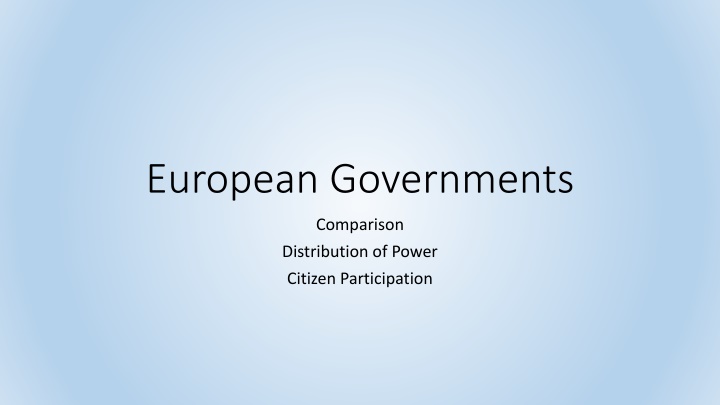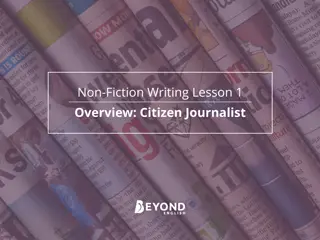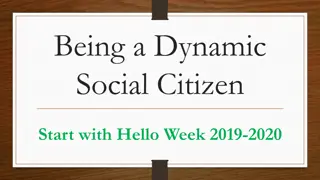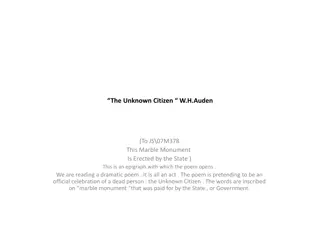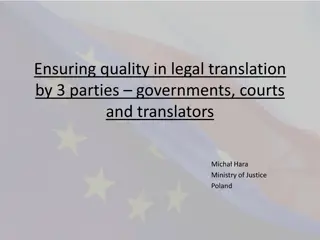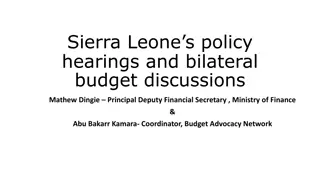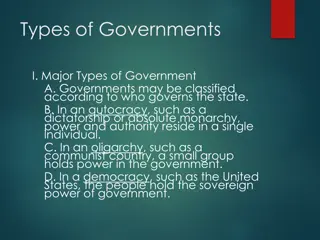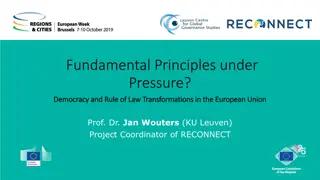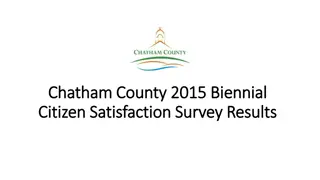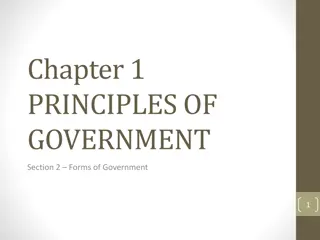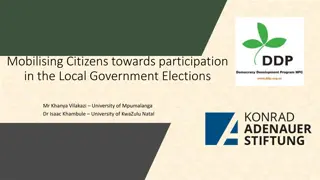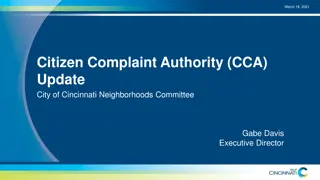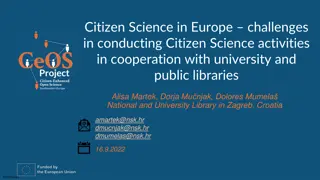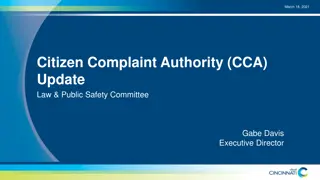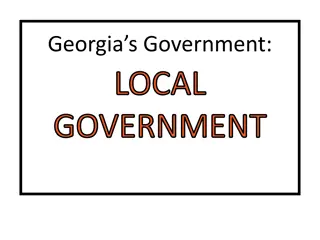European Governments & Citizen Participation Overview
This content provides a comparison of European governments with a focus on the distribution of power and citizen participation. It outlines the characteristics of parliamentary democracy, presidential democracy, and different government types in countries like Russia, Germany, and the United Kingdom. It also discusses the roles of citizens, voting processes, personal freedoms, and various government structures. Additionally, examples from nations like the USA, France, and the United Kingdom are included to illustrate different governmental systems and power distribution scenarios.
Download Presentation

Please find below an Image/Link to download the presentation.
The content on the website is provided AS IS for your information and personal use only. It may not be sold, licensed, or shared on other websites without obtaining consent from the author.If you encounter any issues during the download, it is possible that the publisher has removed the file from their server.
You are allowed to download the files provided on this website for personal or commercial use, subject to the condition that they are used lawfully. All files are the property of their respective owners.
The content on the website is provided AS IS for your information and personal use only. It may not be sold, licensed, or shared on other websites without obtaining consent from the author.
E N D
Presentation Transcript
European Governments Comparison Distribution of Power Citizen Participation
Warm-Up 10/4/2016 Write in your agenda Answer the following prompts in your warm up journal. Describe Parliamentary Democracy Describe Presidential Democracy
Russia Germany United Kingdom Type of Government Parliamentary Democracy Constitutional Monarchy Leadership Prime Minister (Head of Govt/Chief Executive) Queen (Head of State) Type of Government Federal Parliamentary Democracy Leadership Chancellor (Head of Govt) President (Head of State) Type of Government Federal Leadership President Prime Minister (appointed by President) Role of Citizen Voting Elect President Elect Federal Assembly Personal Freedoms Constitution guarantees human and civil rights Role of Citizen Voting Elect Parliament Members Personal Freedoms Similar to the USA Role of Citizen Voting Elect Parliament Members Personal Freedoms Similar to the USA/UK
Example(s) USA, Germany, & Russia Example(s) British Commonwealth of Nations & The European Union A group of states or communities that come together Usually formed with a treaty that can (but does not have to) turn into a constitution Participants are equal and must meet before taking action Usually this is the first step toward creating a more powerful government *** PARTNERSHIP*** Example(s) France & United Kingdom The central government has all the power Has a constitution that outlines duties & powers of the central government and also the people Can give power to the lower levels (ex: states) This power can change or be taken back at any time Central government shares power with the lower levels (ex: states) Has a constitution The power is divided between the central government and the lower levels (ex: states) Power to the lower levels cannot be taken away
What is it? Single Ruler What is it? Small group of people rule WHO HOLDS THE POWER? What is it? Citizens vote/elect leaders WHO HOLDS THE POWER? WHO HOLDS THE POWER? Group answers/is responsible only to other group members Ruler has Unlimitedpower Voters WHO CAN BE ELECTED? No One! Citizens do not vote WHO CAN BE ELECTED? Any citizen (restrictions may apply) WHO CAN BE ELECTED? No One outside the ruling group the group selects the leaders WHO CAN VOTE? No One! WHO CAN VOTE? Any citizen (restrictions may apply) WHO CAN VOTE? No One! Leaders are chosen from within the group EXAMPLE: MONARCHY, CZAR NICHOLAS II, DICTATORSHIP EXAMPLE: THE MAFIA, ANCIENT GREECE AND ROME EXAMPLE: USA, FRANCE
